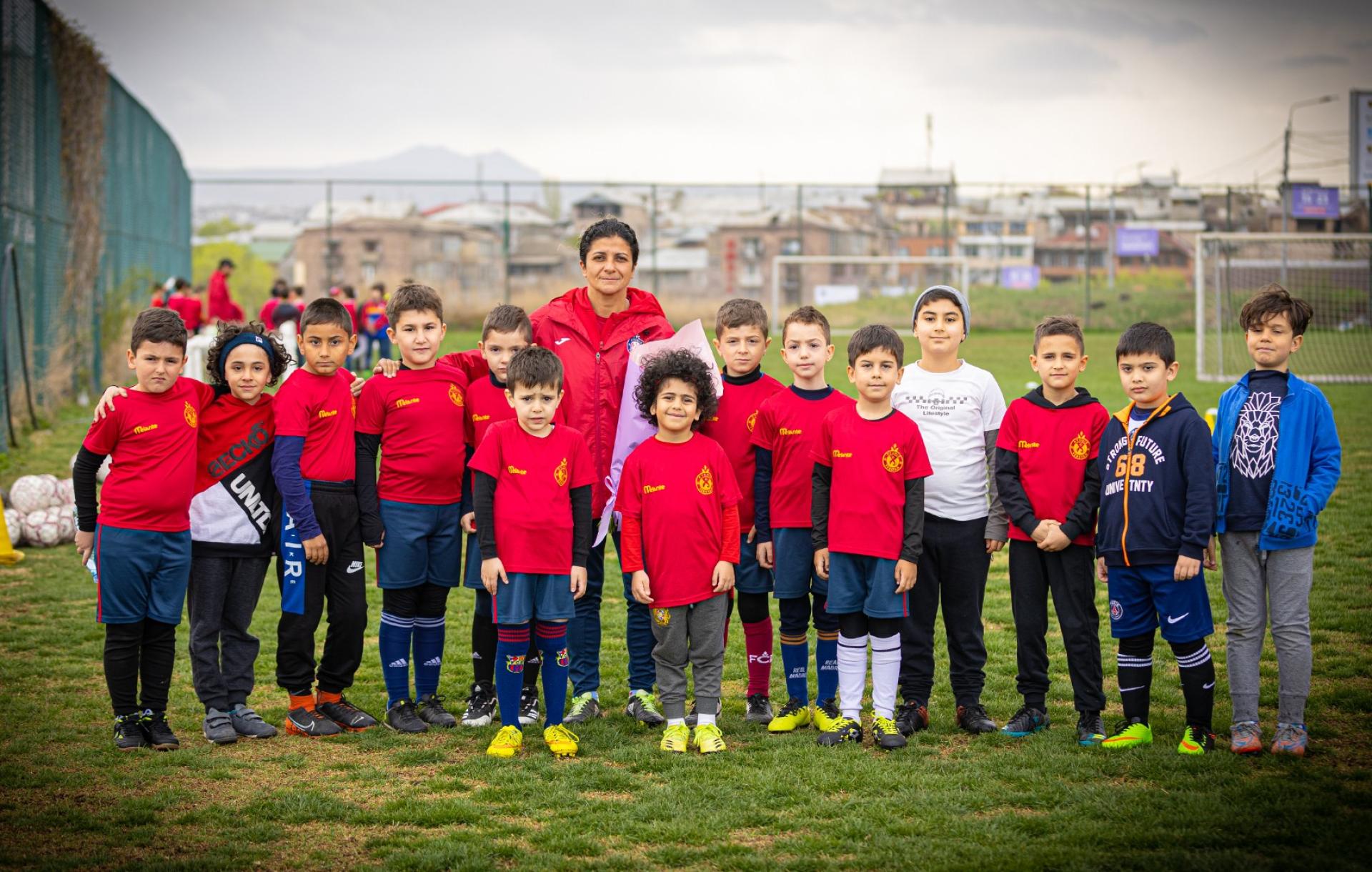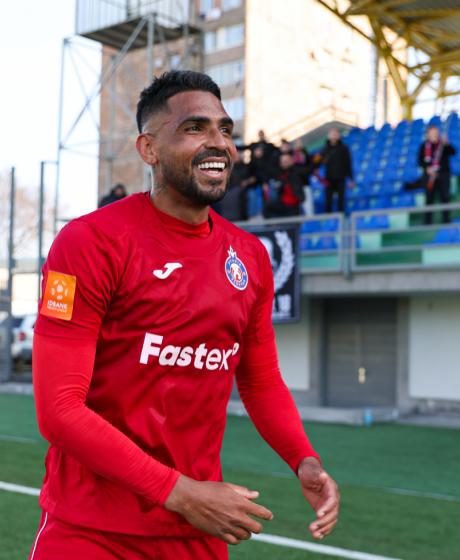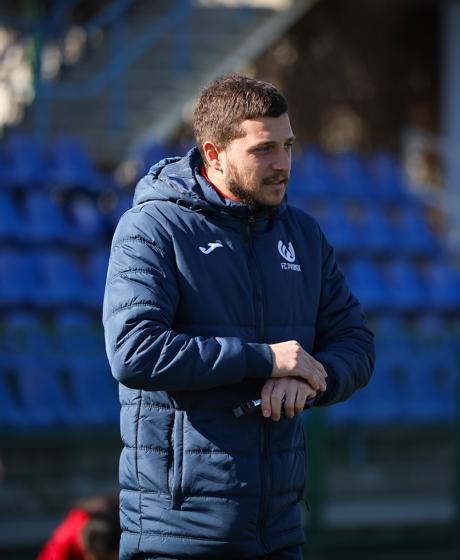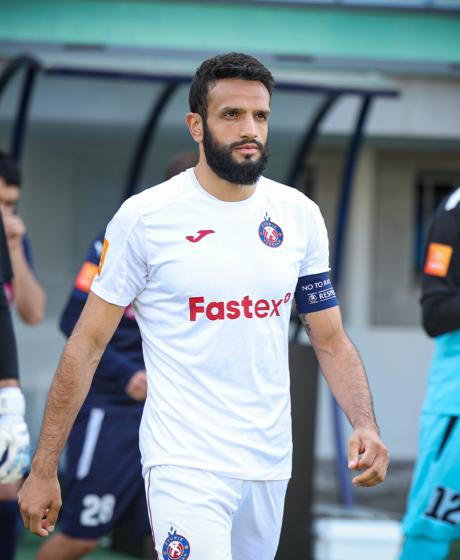
Now women's football is a professional sport, and the world leading academies systematically work over its development. The beginning of this process would be impossible without mutual respect and overcoming prejudice.
Our heroine today is Araksya Saribekyan, the head coach of the Pyunik 2015-6 and 2016-4 teams, an international referee and a brilliant player in the past. She is one of those who two decades ago began to change the idea of women's football in Armenia and brought it to a new level. Araksya told us about her experience, principles of work and attitude to people.
Why Araksya chose football and how it all began
Araksya has always dedicated much time to education; she was the best pupil at school, wrote poems and was fond of drawing. In college, she studied management, paid special attention to languages and wanted to do design. Seeing that there was no women’s football among the sports clubs of the college, Araksya went to the director. Then they decided to organize tournaments for girls in college.
“I always played every game with guys; I loved volleyball, tennis and table tennis. But football was something new and challenging, and therefore interesting.”
Araksya set herself a goal to change people's attitudes towards women's football and their perception of female athletes and to prove that a girl can be strong, independent and professional.
“Everyone thought that we would be like boys and would begin fighting. When my friends found out that I engaged in football, they said: “How?! You are so cool, you are constantly studying, you speak correctly ... "And I answered that it was football that made me cool, because I developed and became stronger.
Career: player, coach, referee
Araksya played for the College team and the national team, became a representative of one of the strongest generations in the history of women's football in Armenia. Being a footballer, Araksya decided to become a coach and a referee in order to see the game from different angles, to analyze the psychological and tactical aspects. She believes that thanks to this experience, she showed the best play in her career. “I began to see, feel and understand everything on the pitch.”
For 13 years, Araksya simultaneously has been working as an instructor in The Open Fun football Schools program, aimed at the development of mass football in the regions.
“ We trained coaches and children and managed to include football in the school curriculum. It was very difficult in the regions. Many people, seeing that a girl had to lecture male teachers, laughed and opposed to that.”
At the age of 24, Araksya suffered a rupture of the Achilles tendon. “That was the moment when I started my football path from scratch. The coach did not believe that I could play. I cried, I was very angry and upset. But, even when I was lying with a bandaged leg, I dreamed about football. I wanted to come back and recovered very quickly.”
After the injury, Araksya received an invitation to the national team, but gave way to a young footballer. Soon Araksya decided to focus on the career of coach and referee. In 2009, she became a FIFA referee and refereed matches of the main European women's football tournaments, as well as matches of men's teams.
“For a long time I didn]t understand how one can be a judge. But I decided that if it's hard for me, then I should try. Now I tell everyone that once in your life you have to referee a match in order to understand both the coach and the player.”
About the principles of coaching
Araksya has been working at the Pyunik Academy since 2018. She was the head coach and assistant coach of the girls' team, and now she coaches the boys born in 2015 and 2016.
“I never forget that I work with children, I don’t forbid them to express their emotions, I don’t scold them for wrong deeds and I say that I love them. At the same time, I remind them that they can compete, but they are friends and must respect each other.”

After each training, Araksya and her alumni sit around on the lawn and talk for several minutes. This allows to discuss everything that remained incomprehensible in the course of the training. Araksya answers questions and inquires how the players feel themselves. “Thanks to it, I learn. Children can reveal a knowledge that you won’t receive in any other place.
Araksya pays much attention to a dialogue and sensitivity. She says that even adults have a child inside and he feels that next to some people he can be free, cry and laugh.”
Talking about women's football
Araksya studied both women's and men's football from several positions. We asked her to talk about the differences between them and highlight the peculiarities of working with girls.
“Boys start playing football from childhood everywhere and always while girls sometimes just look and fall in love. It can be harder to persuade them to play, but once they start, they work very well. If a girl loves football, she achieves her goals."
Araksya emphasizes that it is important to explain to the girls from the beginning that they can be strong, physically developed and still be themselves. She often faced prejudice in her life, but always found a motivation to overcome it.
“I tell everyone, both girls and boys that if they are afraid of something, they should try it. Otherwise, fear will always follow you. There are no such words for me like “I can’t”. Try it! If you succeed, it’s yours, if you don’t, you’ll get an experience anyway. You shouldn’t doubt."
“When I wanted to give up, I asked myself: “Why? I'm strong. I'm a footballer." I’ve got two diplomas, but football has given me everything. I saw the world with it."
Araksya assesses positively the development of women's football in the country and believes that a strong generation is now developing in the academies of our clubs, which in a few years may become the strongest in the history of the country. “You fall in love with a play of some girls there. They play from the age of 6, 10 and succeed.”
Speaking about the Pyunik Academy, Araksya has noted positive changes in its structure in recent years: “Now our academy works for both girls and boys, builds new facilities. This means that it will be even better in the future.”
Recalling interesting moments in your career
“I remember the first time we (the women's team of referees) refereed a men’s match. One of the fans shouted: “What are you doing here? Your place is in the kitchen!” After the match, the players and coaches were ready to applaud us, because we showed a great job. And the fan waited for us and apologized. Then it was our brigade that was sent to the matches of principal rivals, because we managed to maintain discipline.”
At the end of the conversation, we asked Araksya what she would wish for herself and all women.
“I would wish all women and myself to be understood. If you are accepted and heard, you are the happiest woman.”



